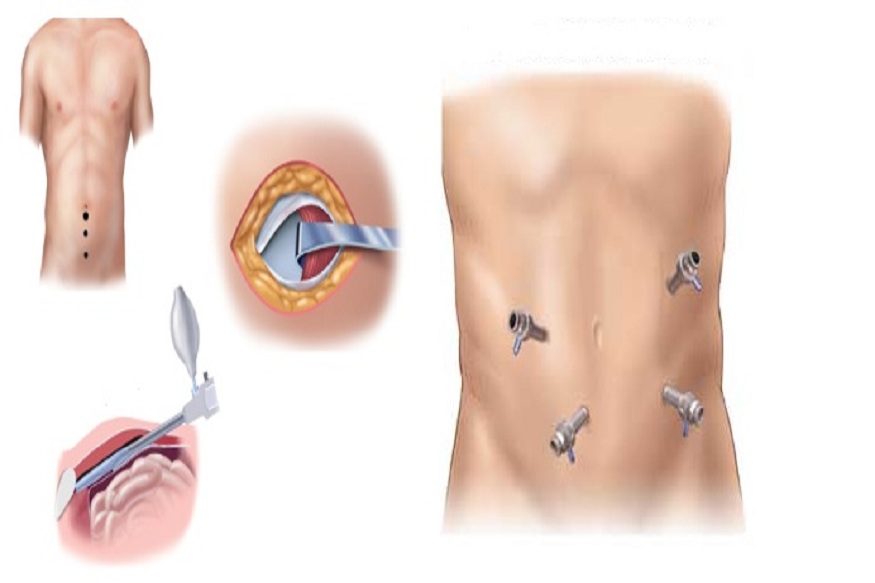
The abdominal wall is made up of muscles , connective tissues , and fascia (membrane surrounding muscles, tissues, and organs) that hold internal organs in place and provide structural support.
Abdominal wall hernias can occur in different areas of the abdomen, including:
RISK FACTORS AND SYMPTOMS OF ABDOMINAL WALL HERNIAS
Various risk factors can contribute to the development of an abdominal wall hernia.
Congenital weakness : Some people are born with a weak abdominal wall, making them more likely to develop a hernia later in life.
Intense physical exertion : Abdominal overpressure due to intense physical activity, chronic coughing, constipation, or lifting heavy objects can put excessive pressure on the abdominal wall and contribute to the formation of a hernia.
Previous abdominal surgery : People who have had previous abdominal surgery may develop a hernia at the site of the surgical incision due to weak scar tissue.
Obesity : Excess weight and increased intra-abdominal pressure associated with obesity can increase the risk of developing an abdominal hernia .
Common symptoms of an abdominal wall hernia may include a visible or palpable bulge or bulge in the affected area. The hernia is sometimes painful , especially when subjected to pressure or physical exertion .
Treatment of abdominal wall hernias usually involves regular monitoring if the hernia is small and asymptomatic . However, in cases where the hernia is painful, large, or likely to cause complications, surgery may be necessary to repair the abdominal wall and return the tissues or internal organs to their normal position.
It is important to consult a healthcare professional if you suspect an abdominal wall hernia to receive an accurate diagnosis and appropriate treatment recommendations. Treatment options may vary depending on the size, location, and symptoms of the hernia, as well as the patient’s medical history.
WHY IS ABDOMINAL HERNIA SURGERY NECESSARY?
Here are some common reasons why surgery may be recommended:
Risk of complications : Abdominal wall hernias can cause potentially serious complications. For example, an incarcerated or strangulated hernia, meaning the herniated tissues or organs are trapped and cannot be replaced within the abdominal cavity. This can lead to intestinal obstruction or impaired blood flow to the herniated tissues, requiring emergency surgery.
These symptoms are often more pronounced during physical exertion, coughing, or prolonged standing.
Hernia size : Larger hernias generally have a higher risk of complications and are less likely to reduce spontaneously or be corrected by non-surgical methods.
Demanding physical or occupational activities : Physical or occupational activities that cause increased intra-abdominal pressure (lifting heavy objects, intense exercise, etc.) can become problematic for the hernia.
It is important to note that each case is unique and the decision to undergo surgery should be made in consultation with a healthcare professional, taking into account your symptoms, medical history, and individual preferences. An abdominal wall specialist will be able to assess your specific condition and recommend the appropriate treatment .




